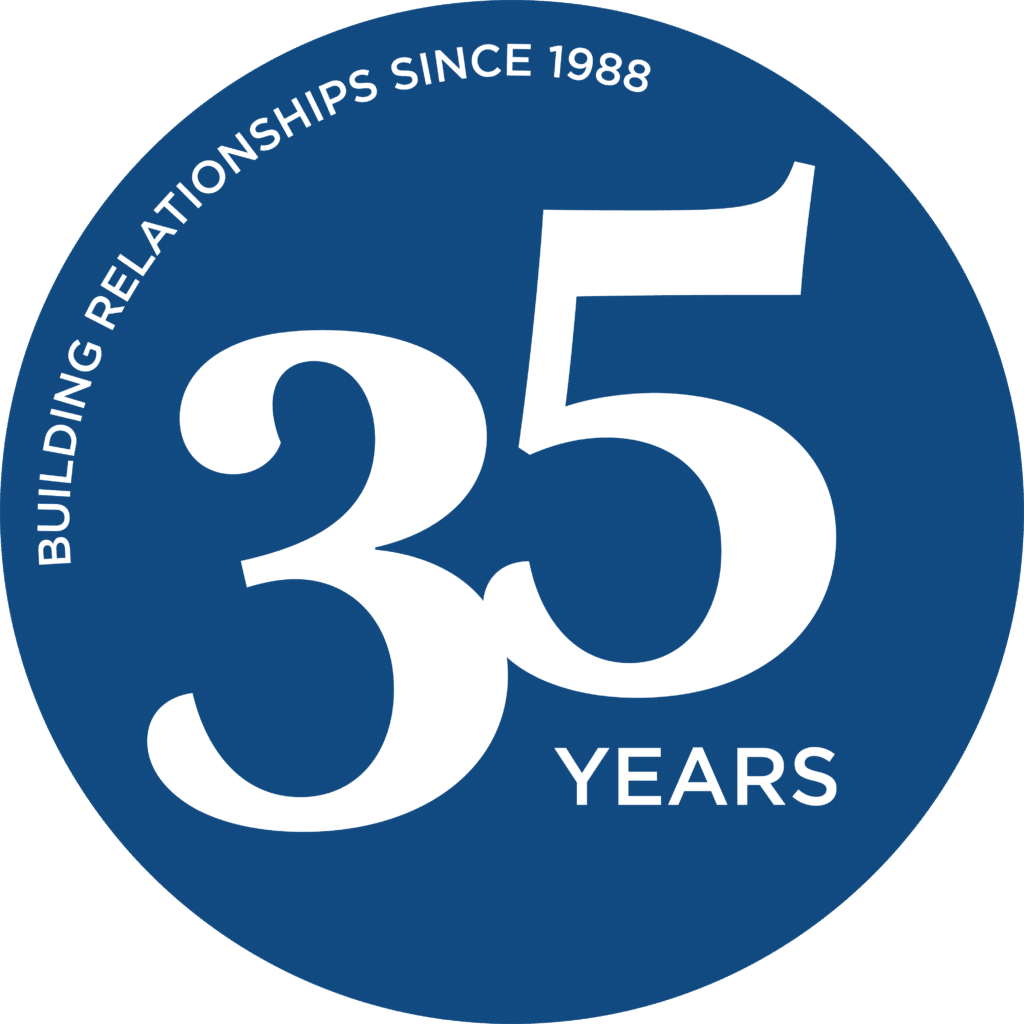Just when you feel like work and personal life are regaining some normalcy, you are requested to attend a meeting with your manager and someone from HR. You want to imagine this is good news, but inevitability fear the worst. And when that fear becomes the reality of job loss, you find yourself trapped in a myriad of emotions. Most of those emotions are somber. Very few of us consider this as an opportunity. Can it be?
The “what’s next” becomes a daunting question, filled with uncertainty. Upon notification of job loss, our coaches at CCI Consulting are often one of the first to speak to someone who has just lost their position. We want to share with you some real-life perspectives on the reality of a job loss and how no two stories are alike. The initial reaction to the job search journey is often founded mainly upon fear. The fear of ageism, scams, career change, starting over, life balance, interviewing, networking, value alignment, salary negotiations, and financial security. Here are a few stories of real people who overcame those fears and encountered the opportunity and obstacles behind job loss, even when they faltered.
Ageism
Meet Joe. With continued emphasis on inclusion, we hope that inclusion considers age. Often, it does not. Joe is a senior financial executive, holding positions as high-level as a CFO. With a resume that includes experience and credentials over 25 years, he can hit the floor running, and at age 55, he does not see the end of his runway. Unlike Joe’s perspective, many of his prospects see the contrary. According to the Bureau of Labor Statistics, in 2022, the average tenure for a male was 4.3 years, and for a female, 3.8 years. Joe will work another ten years, surely able to cover the mean of 4.3 years. The problem is that Joe knows he is 55 years old and subconsciously makes that an issue. We all need to lead with our strengths, not our self-perceived limitations. As part of our career coaching, we coach around “Positioning yourself as the best candidate at 50+,” and it works. Joe landed as a CFO, valued by the “right” employer…finding the latter is the tedious but rewarding part. Based on Joe’s self-perception, he plans to give his new employer those ten final years of his career to the best of his ability.
Somewhat anecdotal, we observe that late-stage career individuals – late 50’s-early 60’s are not viewed as desirable candidates in today’s job market, at least not for jobs with mid-size to larger-sized companies. Ageism appears to be alive and well in hiring practices in many companies. We also observe good news for late-stage career individuals who are diverse candidates (gender/race) in what they seem to land, on average, about 3-4 months sooner than non-diverse candidates.
Very few people consider how or when they will conclude their career and what the time following the transition will look like. It is amazing how many of the senior clients late 50s to early 60s assume they will continue working in their high-level roles until they decide to retire and are shocked when the decision is taken out of their hands by companies that eliminated their positions. Unexpectedly thrown into the job market this late into their career, these candidates find themselves entirely unprepared for a job search. A best practice we recommend is that at age 50, everyone writes an essay entitled… “How my career will end” …. It makes people think about how to best leverage and articulate the remaining 15+ years of their careers. Joe did it!
Scams
Peter spent his entire career as an Underwriter and was devastated when he learned his job was being eliminated. Before engaging with CCI, he quickly jumped into his job search without understanding how the process evolved. A few days after applying online for a “perfect” job, he received an email from a “recruiter.” Peter was obviously excited and relieved, feeling as though the job search process may not take him as long as he imagined. The email indicated that he needed to complete an application before he would be moved to the interview process. What Peter didn’t realize was that this was a scam. He filled out everything in the application, which had the standard information but also included a section for his social security number. Peter quickly completed every section of the application and emailed it back. The next communication came from the scammer within hours of receiving Peter’s application. They indicated that his application looked great, and he received the green light for an interview, but prior to that step, the company requested a background check. Peter assumed this was normal, especially knowing that this job would require him to handle private financial data. The scammer also shared that a third-party vendor would handle the background check fee was $500. They also told Peter he would be reimbursed once he completed the interview. Naturally, Peter obliged and provided all the necessary credit card information. After waiting a few days and not hearing back about the next steps, Peter realized he had been scammed. It was never a real job. So, instead of spending time on his job search, Peter had to deal with the headache of protecting his assets. Learning a valued lesson, resiliency persisted, and he overcame the setback.
The Caveat Emptor for job seekers, think twice and seek advice. The Federal Trade Commission has some good advice.
Transferable Skills and Career Change
Ingrid worked in the mortgage industry for almost ten years. When she lost her job, Ingrid quickly engaged with the CCI services her company provided. She was thankful for the guidance on writing a resume, using LinkedIn, and networking, which had all been neglected since she was working and never imagined being in a job search. During coaching meetings, Ingrid and her coach discussed the ups and downs of her recent industry. She was determined not to return, so her resume was reconstructed by downplaying the mortgage experience and highlighting her many transferable skills. As Ingrid started researching companies and roles, she quickly realized there was a lot of demand for her skills. Ingrid had a healthy network but had not stayed in touch with many. Ingrid’s coach helped her begin the journey of identifying what was important to her – the type of company she wanted to work for, the industry, and the level. This process gave her clarity as she started having conversations with her network. Within three weeks, one of her “former” colleagues reached out and shared an opportunity at a major Financial Services company within miles of her home. The resume jumped past the pre-screen stage (and ATS review) since Ingrid’s contact forwarded it directly to the hiring manager. Ingrid was interviewed days later. By the end of the week, she was presented with a terrific job offer. Yes, she accepted it, and when we last spoke months later, she was very energized and happy. Yes, we can make a change!
Lost Hope and Ghosts
Susan held a senior-level position within HR and lost her job due to a corporate restructuring. At the expense of her former employer, CCI and Susan partnered on building her tools, and she quickly began networking and interviewing. During one of her coaching meetings, Susan indicated that her #1 target company had informed her that she should expect an offer by the end of the week. However, this promise was followed by silence. After two weeks with no job offer, she contacted the hiring manager. He apologized for not staying in touch and shared with her that an internal candidate was presented before Susan received the job offer. The internal candidate had priority, so he was offered the job and accepted it. This was tough news for Susan, caused despair, and deflated her job search morale. She missed coaching meetings and stopped responding to numerous outreach attempts. Weeks went by, followed by a few months. Susan finally reached out via phone. Her message was, “Please call me, I have to apologize for not staying in touch, but I want to share a story with you.” After being rejected, she fell into a depression and stopped job searching. She also mentioned that during this time, she gained 15 pounds. Susan allowed herself time to grieve and get angry but woke up one morning and felt the drive to return to her local gym (which she stopped attending during her time of distress). Within 15 minutes of stepping into the gym, an old friend approached her to catch up. During the discussion, she mentioned that she lost her job and was feeling inadequate. He grabbed his phone, dialed a number, and handed the phone to Susan. He said, “Say hello to Robert and tell him what you do.” She remembered the coaching meeting about creating her “elevator” speech. As the conversation with Robert continued, he said, “We have to meet.” He was a Board Member of a Healthcare start-up company looking for HR leadership talent and wasn’t finding the right person. Within days, she was interviewed by Robert and the entire board. The final interview with the CEO was met with great success. The final job offer exceeded her expectations in salary and title and Susan was finally able to do the type of HR leadership work she loves.
Culture and Value Alignment.
Many job search candidates approach their career transition in a “transactional” mindset rather than a strategic mindset. Their focus is on finding their next job and one that pays the same or more than their last job. While losing a job is certainly a shock, it does provide the opportunity to pause and reflect on how satisfied they were in their former position, where they are on their career/life journey, what would be an appropriate next step in their journey, etc. We coach people to take advantage of this pause and consider their career journey more strategically. Some do so, and some do not.
Sometimes you need to reevaluate your priorities. Although many would not “volunteer” to lose their job, there is a silver lining opportunity associated with termination. Keith was working as a consultant and self-proclaimed “road warrior.” Clocking over 70 hours a week and spending an average of 4 days on the “road” is grinding. Something had to give…but what? One aspect of the career journey is figuring out what you want, not just in terms of position and salary, but in life. Considering his personal inventory, Keith chose to seek a balance between his work and his family life. Fighting the temptation to get back on the same horse, Keith found an opportunity that offered more leadership responsibility, more long-term upside, fewer hours, and less pay. That equation was balanced for him. He is betting on the long term.
So Many Stories, So Little Space.
What’s the anecdote? There are so many stories of success and equally as many challenges in the job search process. It is complex and daunting to navigate all the technological advances, especially for those new to this world of contemporary job search. Discussing how and where we work in this quagmire of onsite and remote options is challenging. It is intimidating to ask for pay transparency when historically, such information was private and secretive. It challenges many to ask for help and network for a position. Many have trodden these obstacles, but just as many have reached the pinnacle of their journey. Amid all the fear and frustration, we hope these stories motivate you to make your journey… just that… your journey. And when offered help, seize it… CCI has a passion for creating stories of success, although success is all theirs!
Sharon Imperiale
CEO/Owner



